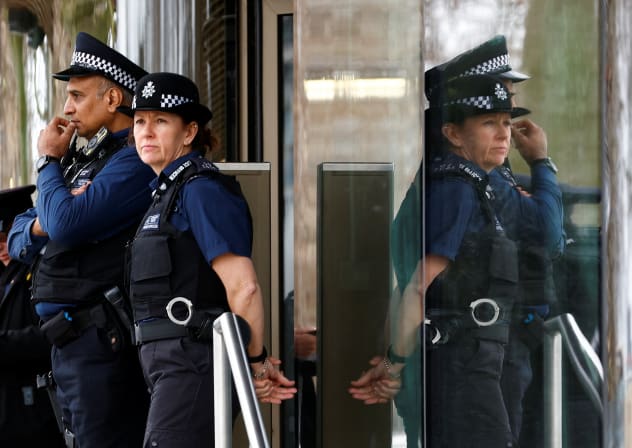Colombian President Gustavo Petro escapes assassination attempt while traveling to Córdoba
Petro alleged that a “new drug cartel board” has been plotting to kill him since he assumed office in August 2022, El Tiempo reported.

Petro alleged that a “new drug cartel board” has been plotting to kill him since he assumed office in August 2022, El Tiempo reported.




Akin Gurlek was the chief prosecutor behind the crackdown on the Turkish opposition party. His appointment marks the first cabinet shuffle since the last election.

The bodycam footage challenges the Trump administration's account, with additional evidence suggesting the agent had bragged about his marksmanship after the shooting.

This marks the second such incident of Chinese nationals being charged under Australia's foreign interference laws, with Australian officials noting the growing issue of foreign espionage.

US President Donald Trump accused former presidents Barack Obama and Joe Biden of “creating a monster” in reference to their administrations' handling of the Iranian nuclear issue.

Police officers are conducting additional sweeps of nearby residences and properties to determine "whether anyone else may be injured or otherwise linked to today’s events."

About 6,000 Italian security units are stationed to secure the event.

Photos and video released by the FBI and the Pima County Sheriff's Department show a person wearing a face mask, gloves, and a backpack outside of the 84-year-old's home.

The files have also created crises abroad after revealing new details of Epstein's ties to prominent people in politics, finance, business and academia.

The suspect, 13, was arrested on suspicion of attempted murder and remains in custody for questioning.

"Either we will make a deal, or we will have to do something very tough like last time," Trump told N12, while saying that both Iran and Israel are interested in landing "a good deal."
